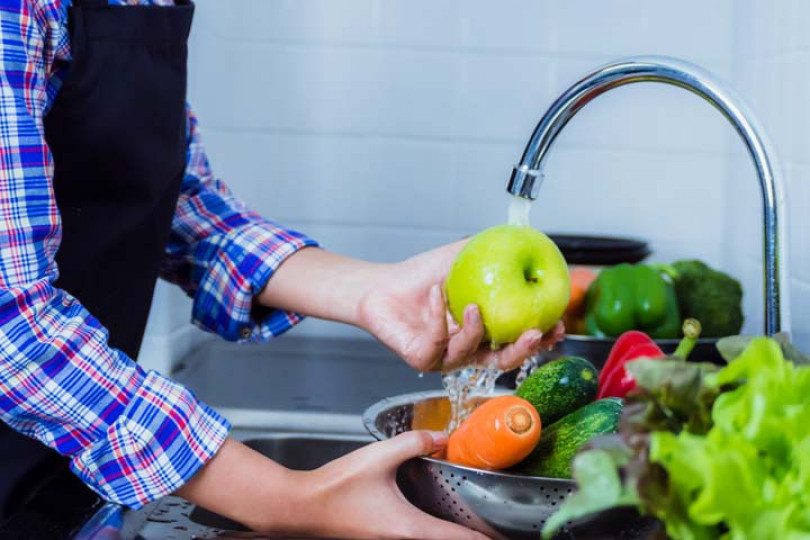NEED TO TAKE a trip to the store for food or other supplies? With new information emerging every day about COVID-19, it can be hard to know how to stay safe when you must make an essential trip. Here are a few things you can do to mitigate your risk of contracting or spreading the virus.*
- Stay home as much as possible. If you don’t need to leave your house, don’t do it. Limit your grocery trips to once every two weeks of you can.
- Keep your distance. At the stores, as with everywhere, practice social distancing and stay at least six feet from other shoppers. Some stores have lines marked to help you know how far to stay back.
- Plan what you need ahead of time. Having a meal plan and grocery list that matches will not only minimize unnecessary spending and waste, it will also make your grocery trip more efficient and shorter.
- Shop during off-peak hours if you can. Some stores have set aside special hours for older and immunocompromised people to shop. If you qualify, shop at those times. Otherwise, try to find times when the store is less crowded, if possible.
- Use sanitizer for your hands and cart. Many stores have set up sanitizer stations, often near the carts. As soon as you get your cart, wipe it down (especially the handles and other areas you touch), and then sanitize your hands.
- Only touch what you need to touch. Try to minimize what you touch in the store and keep your sanitizer handy to reapply.
- Avoid touching/using your phone. If you must use your phone in the store, remember to wipe it down after any possible contamination.
- Clean your hands. Use sanitizer after you load your supplies into your car. After unloading at home, wash your hands for at least 20 seconds, and sanitize surfaces your bags have touched.
- Wash produce with water. According to this recent article in The Guardian, food safety experts say produce should be washed only with water. Donald W. Schaffner, a food microbiologist and professor at Rutgers University advises in the article that people who use chemicals to “disinfect” produce may be exposing themselves to chemicals designed for use on hard surfaces.
- You don’t need to sanitize food packaging—but DO wash your hands, frequently. The U.S. Centers for Disease Control and Prevention currently does not recommend disinfecting food packaging.
- Don’t go to the store. If you have been exposed to COVID-19 or are experiencing symptoms, are age 60 or older or are immunocompromised, there are other ways you can get the supplies you need:
- Use a store grocery fulfillment service. If a friend or neighbor can pick up your order for you, have them leave it on your porch. Leave any tips electronically and be sure to wipe down surfaces the bags touch and to wash your hands.
- Use a grocery delivery service. Again, have the delivery left for you on your porch or outside your door, and leave a tip electronically. Wipe down surfaces the bags touch and wash your hands.
*The tips in this article are in no way intended to serve as medical or definitive advice. As new information becomes available about COVID-19, some information may become moot or change. For the most up-to-date information about COVID-19, visit https://www.cdc.gov/coronavirus/2019-ncov/.






